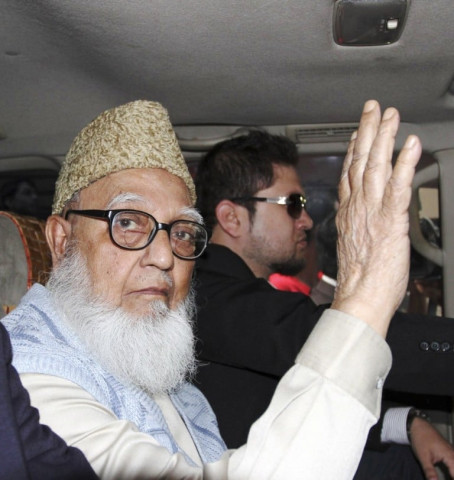Punishment for war crimes
Bangladesh must be careful that these trials being conducted by the tribunal do not turn into a witch-hunt.

Wheelchair-bound Azam pleaded not guilty after the charges were read out to him for two hours. PHOTO: REUTERS/FILE
For any nation to move forward, it must make peace with its past, and for nations, whose creations are steeped in bloodshed and violence of the most horrific sorts, this is all the more true. It is also essential because there is a tendency for people to forget, for them to bury what is too ugly to be comfortable, but there lies the danger of not learning from the past, and hence, repeating the same mistakes over and over again. The tribunal’s efforts, taken in this light, are much needed. But the fact of the matter also remains that the tribunal is itself mired in much controversy, with the New York-based Human Rights Watch group stating that its procedures fall short of international standards. Such accusations undermine the workings and verdicts of the tribunals and lend credence to accusations that the trials are politically motivated, and may, if not addressed, lead to more wrongdoing that will then have to be addressed for any true closure to take place.
Indeed, Bangladesh must be careful that these trials being conducted by the tribunal do not turn into a witch-hunt. It is only once the tribunal’s workings are on a par with international standards, that the government will be able to effectively deal with the bloody protests against the judgments and the criticism that the tribunal has faced internationally. This is too important a matter to be mired in controversy and it must be ensured that the whole process is legitimate for it to truly heal the wounds of the Bangladeshi nation.
Published in The Express Tribune, July 17th, 2013.
Like Opinion & Editorial on Facebook, follow @ETOpEd on Twitter to receive all updates on all our daily pieces.















COMMENTS
Comments are moderated and generally will be posted if they are on-topic and not abusive.
For more information, please see our Comments FAQ